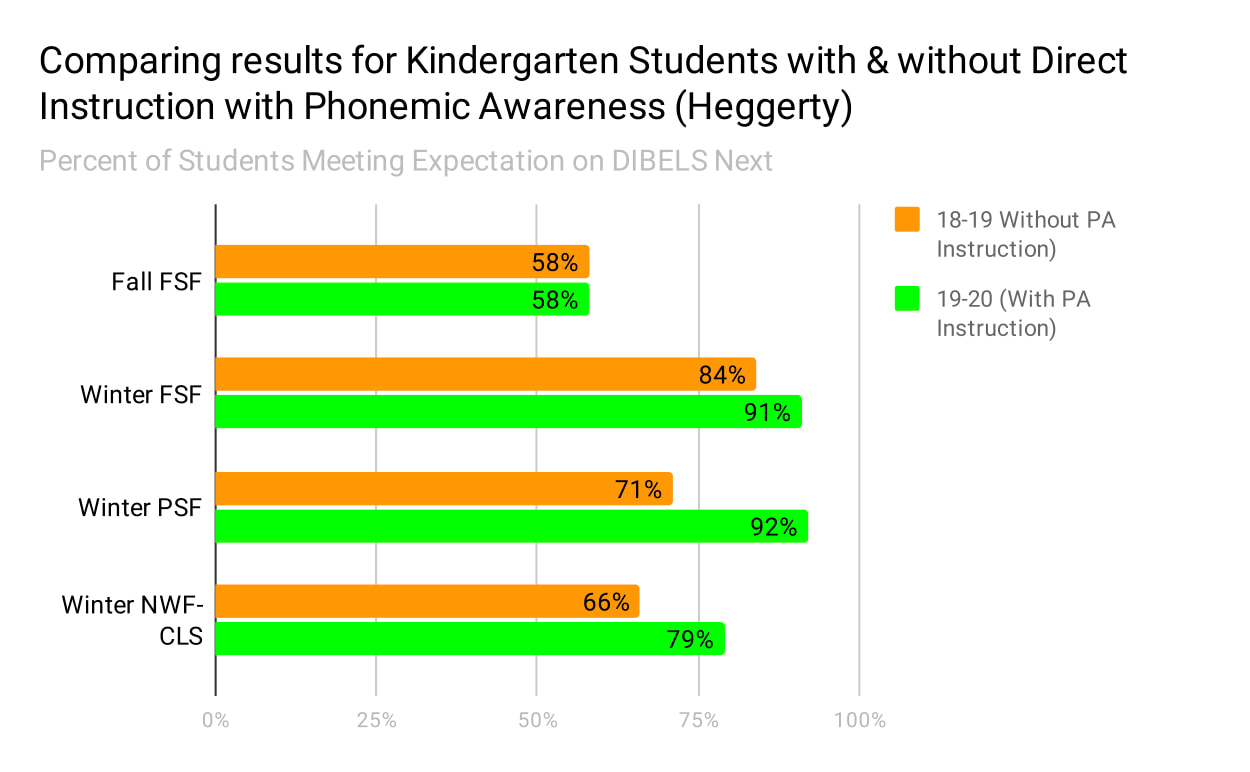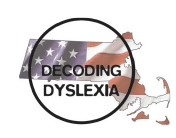A Conversation with DDMABrent Conway, Assistant Superintendent, Pentucket Regional School District (MA) Mr. Conway is an experienced School Administrator from Massachusetts. While Brent’s background and scope of work for schools is expansive, his passion is with improving literacy outcomes for ALL students. His work as an Elementary Principal led him down a path learning about evidence based practices and whole school change. Many schools use “tiers” but by also applying skills based assessments and taking a scientific approach to a whole school literacy plan he is creating positive changes. For Dyslexia Awareness Month he discussed his work with Decoding Dyslexia Massachusetts (DDMA) Executive Director, Nancy Duggan, answering some questions on how his distinct is approaching reading instruction, assessment and intervention. DDMA: In October, we celebrated all of the professionals and parents who are sharing their stories, resources, and research about Dyslexia to acknowledge Dyslexia Awareness month. Our group spends a great deal of time advocating for instruction for students with Dyslexia. We know it is best handled by highly qualified specialists who can provide the structured literacy reading instruction dyslexic students need to become proficient readers. But, let’s talk today about the importance of general education, with an educator who is applying the science of reading in his district for all students . Can you tell us how science helps determine a high quality curriculum and why it matters for all students? Assistant Superintendent Conway: High quality curriculum and instruction delivered to all students can prevent, or lessen, the need for later intensive services, while also strengthening the foundational literacy skills for students who do not have a disability but simply do better with a structured approach. This hurts no one but actually helps almost all. But not all curriculum focuses on the skills our kids need. A few years ago, we started our work by using assessments that would inform us based on predictive reading skills, those early language skills that research shows predict later reading success. Assessments indicated which skills our students were struggling with and which ones they seemed to be demonstrating quite proficiently. DDMA: The key indicators predicting risk for dyslexia are phonemic awareness, and naming speed, or for emerging readers, letter sound knowledge. Are these areas you assessed and how did this approach impact curriculum? Assistant Superintendent Conway: It was apparent early on that we had no school or district wide general education classroom curriculum or instructional approach to teach Phonemic Awareness to our early and emergent readers. Our data clearly indicated that we had too many students in Grade 1 struggling with blending and too many students in grade 2 and above who were not reading with automaticity and fluency, detracting from their ability to create meaning from text. We took a first step in the Fall of 2019. We implemented and trained teachers in PreK to grade 2 on the Heggerty Phonemic Awareness curriculum. As with any good tiered approach to actually teach a student “We assess back to the point of breakdown - then intervene.” We did the same with our curriculum. We were already using Fundations in Grades K-2 which taught the letters and decoding, but as we looked at the progression of foundational skills, direct, systematic and explicit instruction on phonemic awareness was missing. We assessed it to the point of breakdown, then intervened by adding Heggerty. The Heggerty program provided a simple and easy way to do this. Our teachers immediately started with the 10 minute per day routines, advancing through the sequence. For those students who demonstrated more struggle and were at-risk, they received more than 10 minutes in a small group, sometimes from the classroom teacher and sometimes from an interventionist. DDMA: Can you share the results of this approach? Assistant Superintendent Conway: Yes, the results speak for themselves. The chart below compares how our Kindergarten students did on multiple phonological skills assessments on the DIBELS Next assessments from the prior year to the year we used Heggerty. Even though it is a totally different group of kids, the difference is striking. Their improved ability to segment sounds and its impact on their decoding as well, is solid evidence. We made these decisions based on the reading research and our data matches the expectations. Our teachers are seeing the difference as well. Our early prevention approach with general education dramatically reduced our percentage of Kindergarten students who would be considered at-risk and it likely enhanced all other students' ability to apply the skill more independently.  DDMA: How was scheduling impacted by additional skills instruction for Phonemic Awareness and … of course how will the Covid-19 protocols impact your new approach?
Assistant Superintendent Conway: Our work was obviously interrupted by the closure of schools in the spring and the abrupt shift to remote learning. I know our teachers continued to focus on developing these skills remotely but we did not complete spring assessments. That aside - we know it works and the teachers felt great about where their students were headed. As Neuroscientist, Professor and Literacy expert Dr. Nadine Gaab recently tweeted - in her series of Dyslexia Myths: Dr. Nadine Gaab @GaabLab Most importantly, all struggling readers benefit from early identification & evidence-based interventions regardless of where they live & what caused their difficulties. Learning to read is a basic right, let's all make sure we maximize the joy of learning to read for everyone! 9:04 AM · Oct 1, 2020·Twitter Web App Even in general education the premise holds true. We don’t consider Heggerty, Fundations or any of our General Education curriculum to be “intervention”. If we provide all of our students with the curriculum and instruction that helps at-risk readers, they will all benefit. I am not implying that general education alone will meet all the needs of students with disabilities, like dyslexia. However, if we target these early skills, the skills research shows impact future success, we are addressing needs in a more timely and efficient way. We do know that strong general education can decrease the number of students who need intensive interventions in later grades. DDMA: You mentioned some students even with this early skill development were getting more time with phonemic awareness. So was this skill and instruction providing additional tiered support for all students including those with IEPs? Assistant Superintendent Conway: Using skills based data was also an important tool in making sure that students get what they need, when they need it. If we provide high quality general education instruction and combine that with a tiered approach that focuses on early intervention that is targeted towards precise skills identified by assessment tools like DIBELS, we can dramatically reduce the percentage of at-risk readers and put them on a path for reading proficiency. The science of reading has helped us to know what screening assessment measures are predictors of reading success and which measures can also predict those who are at-risk. Using these assessments in a tiered approach, drilling down further for those who are at-risk to know specifically which skill needs focus, has allowed our general education teachers to work in concert with reading interventionists and special education teachers. DDMA: Parents often hear about reading levels - are the students on or off the level? Can you help parents understand how skill based measures and instruction differ from looking at levels? Assistant Superintendent Conway: Beyond the specific student level focus, using skill based assessments that predict reading proficiency, allows us as a district to see what is working on a larger scale and which general education curriculum and instructional routines are effective. We made a purposeful shift away from reading “levels” as they did not provide us the “why” when a student was behind. Additionally, many times those levels did not correlate with a student’s reading skills that were actually behind, causing a delay in supporting those early skills. Our Assessment Plan combines tools from all three tiers, and provides staff with the big picture of how screening assessments for all students are connected to the more focused and diagnostic assessments for those who are in need. DDMA: It looks like these changes are a step in a very positive direction for your district. I hope your data collection can continue and results in skills improvement for all your students. Assistant Superintendent Conway: We are still in our early stages of our journey to advance our practices but the enthusiasm is present among teachers and administrators even with the unique start to this school year. We are a recent recipient of the Early Literacy Grant from MA DESE: From Research to Practice: Evidence-Based Early Literacy and we are looking forward to our next steps. The recent release of the MA Early Literacy Guidelines which focuses on evidence based curriculum, assessment and instruction for foundational skills is also promising. Myself and other staff in Pentucket were part of the development and we look forward to using it as a roadmap for everyone to see how supporting students who are at-risk is a “group project” and not just the responsibility of a specialist. If we approach this together and coordinate our general education, interventions and special education, the results can be powerful. DDMA: Thank you, Assistant Superintendent for taking the time to share this with us. Explore the new Mass Literacy links from DESE (MA Department of Elementary and Secondary Education.) Mass Literacy is a statewide effort to empower educators with the evidence-based practices for literacy that all students need. Evidence-based instruction, provided within schools and classrooms that are culturally responsive and sustaining, will put our youngest students on a path toward literacy for life. Click the links below to learn more about evidence-based practices and resources that are ready for use in preK-3 classrooms. www.doe.mass.edu/massliteracy/?fbclid=IwAR1wlRqvoP722FM4T9HoVCOUuqqxqFuvF8ONqWPEq3yfDLUOl64qUOYEF5w For more information about Phonological Awareness from DESE https://www.doe.mass.edu/massliteracy/skilled-reading/fluent-word-reading/phonological-awareness.html |
Proudly powered by Weebly


 RSS Feed
RSS Feed